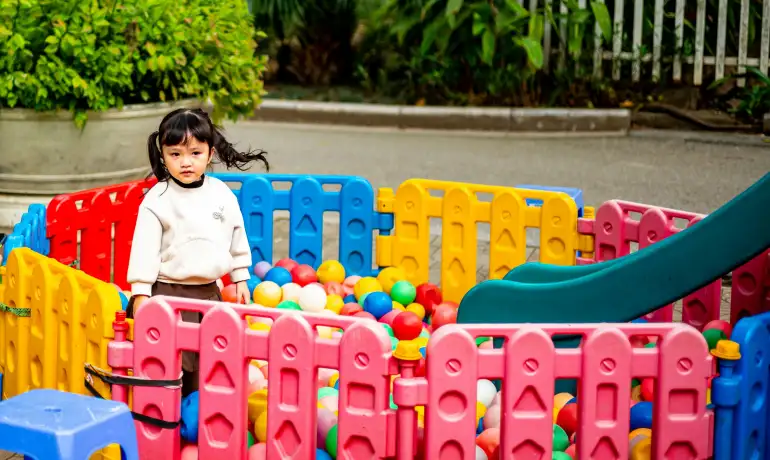Choosing the right preschool teacher is one of the most important steps in giving your child a strong start in life. These early educators do far more than just teach ABCs and numbers—they inspire curiosity, nurture social skills, and help children build confidence that lasts well beyond their preschool years.
In this article, we’ll explore seven key things every parent should know before deciding on a preschool teacher. Whether you’re just starting your search or comparing several schools, these insights will help you choose the perfect guide for your child’s first learning journey.
1. Different Teaching Philosophies and Curriculums

Not every preschool teacher teaches in the same way. Different schools follow different learning philosophies, and understanding them can help you choose what’s best for your child.
Some well-known approaches include:
- Montessori – Encourages self-directed learning and independence.
- Reggio Emilia – Focuses on creativity, exploration, and collaboration.
- HighScope – Uses structured routines and active participation.
- Waldorf – Combines academics with art, music, and imaginative play.
Each style shapes how your child learns problem-solving, creativity, and discipline. For example, a Montessori preschool teacher may let your child explore materials freely, while a HighScope teacher follows a more structured daily plan.
Parent tip: Visit classrooms, observe activities, and talk to each preschool teacher to see which philosophy aligns with your child’s personality and needs. You can also explore options through trusted guides like preschool Singapore to get more insights into schools near you.
2. Technology in the Preschool Classroom
Technology is becoming more common in early education, and many preschool teachers now use interactive whiteboards, tablets, or educational apps to make lessons engaging. When used well, these tools can teach letters, numbers, and problem-solving in fun, interactive ways.
However, research suggests that young children still learn best through hands-on experiences and face-to-face interaction. That’s why many schools ensure technology complements, not replaces, active play.
As a parent, ask the preschool teacher how they integrate technology into the classroom. Is screen time balanced with storytelling, outdoor play, and arts and crafts? The best classrooms use technology as a helper, not a replacement, for real-world experiences.
3. Building Character and Emotional Intelligence
A truly great preschool teacher focuses on more than academics—they help shape your child’s character and emotional skills. Qualities like empathy, patience, cooperation, and resilience are just as important as learning to count or recognize colors.
Teachers often use role-play, storytelling, and group activities to teach children about emotions. For example, when two kids argue over a toy, a good preschool teacher will guide them to talk about their feelings and work together to find a solution.
These moments teach children valuable life skills—how to solve problems, respect others, and feel confident in themselves.
4. Real Challenges Preschool Teachers Face
While being a preschool teacher is rewarding, it comes with challenges that parents might not see. Managing a classroom full of energetic little ones requires constant focus, creativity, and patience.
Teachers often balance lesson planning, supervising play, guiding behavior, and completing administrative work—all in one day. There are also physical demands, such as bending, kneeling, and staying active with the children.
Understanding these challenges can help parents show more appreciation and support. Sometimes, a simple thank-you or volunteering to help at an event can make a big difference in a teacher’s day.
5. Strong Parent–Teacher Communication

The best learning happens when parents and teachers work together. A good preschool teacher will keep you informed about your child’s progress, challenges, and milestones through regular updates or parent–teacher meetings.
Strong communication allows both sides to share valuable insights—teachers can share observations from the classroom, while parents can provide details about a child’s home life that might influence behavior or learning.
If differences arise, like opinions on discipline or learning pace, an experienced preschool teacher will focus on respectful, solution-based conversations to keep the child’s best interests at heart.
6. Qualifications and Standards Around the World
Not all preschool teachers are trained in the same way. In some countries, they need a bachelor’s degree in early childhood education; in others, an associate degree or teaching certificate is enough. Many schools also require ongoing professional training.
When visiting a preschool, ask about your preschool teacher’s qualifications, experience, and training. This ensures your child is learning from someone who understands child development and safe teaching practices.
You can read more about global variations in standards on Wikipedia.
7. Questions Parents Should Ask a Preschool Teacher
Before enrolling, take time to talk with your potential preschool teacher. Ask about their teaching style, how they handle conflicts, and what a typical day looks like.
Here are a few good starting points:
- “How do you adapt lessons for children with different learning needs?”
- “What activities do you use to develop social and emotional skills?”
- “How do you keep parents updated on progress?”
Observing a preschool teacher in action can also tell you a lot—watch for patience, warmth, and genuine enthusiasm for working with children. You can also explore resources like preschool search portal to better prepare your questions and expectations.
Conclusion
A great preschool teacher can spark your child’s curiosity, boost their confidence, and give them a positive start to their learning journey. By understanding teaching styles, technology use, character-building, and communication practices, you can make an informed choice that fits your child’s needs.

If you’re ready to find a preschool where teachers truly care about your child’s growth, explore more about us at littleunicornpreschool.com or contact us here to book a visit.
FAQ: Preschool Teacher
Q1: How many children should a preschool teacher handle at once?
A: This varies by country, but a common ratio is one teacher for every 8–10 children to ensure proper attention and safety.
Q2: Should a preschool teacher use technology with young children?
A: Yes, but in moderation. Technology should be a supplement, not the main teaching method, especially at this developmental stage.
Q3: How do I know if a preschool teacher is qualified?
A: Ask about their education, certifications, and professional development. A qualified teacher should also have experience working with children in a preschool setting.
Q4: How can I support my child’s preschool teacher?
A: Maintain open communication, attend school events, and offer help when possible. Even small gestures of appreciation go a long way.



